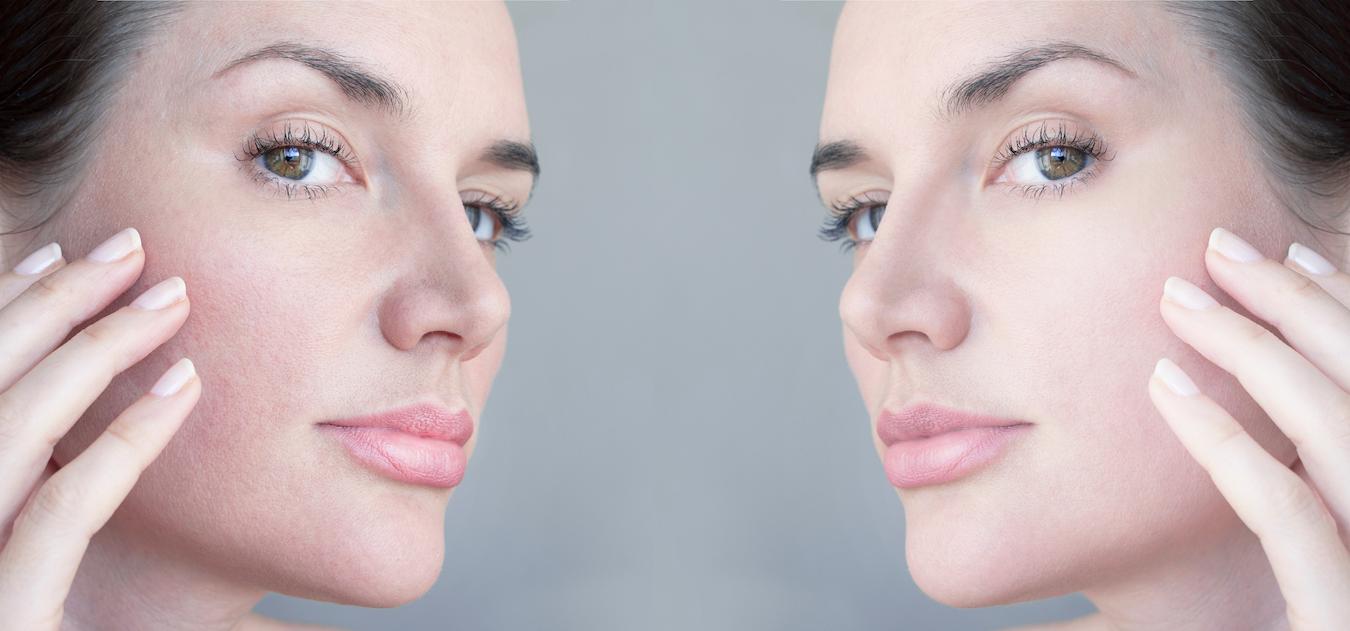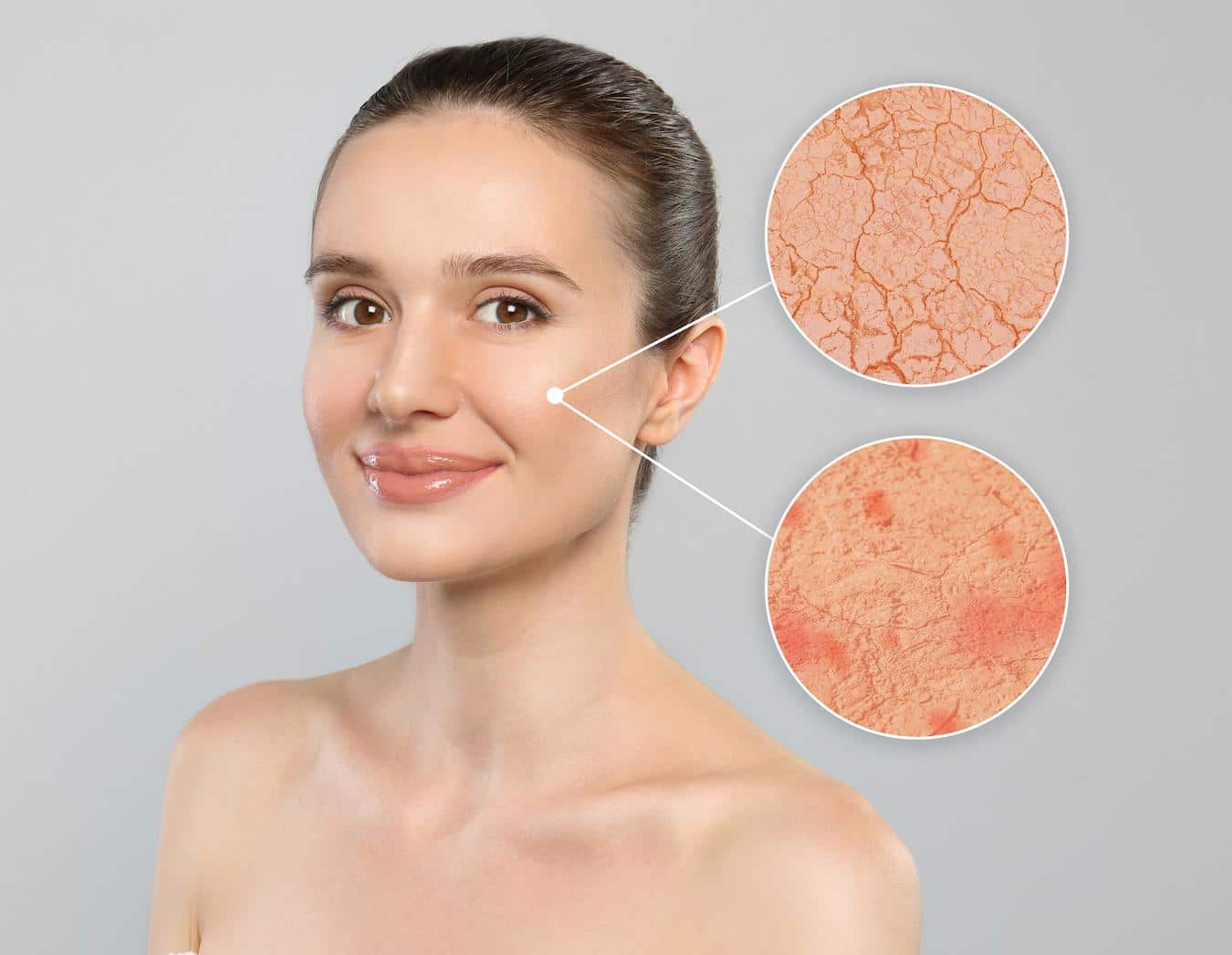8 Signs You Probably Have Sensitive Skin

Our skin is a delicate part of us, and it’s essential to treat it with care and attention. If you have sensitive skin, it becomes increasingly important to maintain a healthy and glowing complexion.
Key Takeaways
- Dry skin is the most common sign of skin sensitivity
- It’s common for sensitive skin can quickly flush and turn red
- It’s easy for sensitive skin to develop rashes or small acne-like bumps
- Excessive itchiness is a common sign of sensitive skin
- Product fragrances frequently lead to irritation in sensitive skin
- Acne and breakouts are common signs of skin sensitivity
- Those with sensitive skin can quickly burn in the sun
- Sensitive skin is often very reactive to various skin care ingredients and even environmental elements
Skin sensitivity can be challenging to treat effectively. Factors like allergic contact dermatitis or excessive dryness commonly cause irritation or inflammation.
Narrowing down the cause of sensitive skin can be tricky. But what’s key is identifying if you even have sensitive skin. After all, our unique conditions can present differently.
Keep reading if you think you have sensitive skin, and we’ll let you know how to treat your unique symptoms to get the healthy and glowing complexion you deserve!
See Related: 6 Signs You Have Dehydrated Skin & Tips On How To Fix It
How Can You Recognize Skin Sensitivity?
Many of us believe that sensitive skin is just a predisposition to developing common irritation. But, in fact, skin sensitivity is often much deeper than that.
Many medical conditions lead to symptoms that are similar to that of sensitive skin. For example, common skin conditions like eczema and rosacea are often mistaken for sensitive skin. In addition, anything from environmental factors to certain beauty products can lead to skin issues like sensitivity or irritation.
When it comes down to it, there’s no black-and-white checklist of sensitive skin symptoms. We all have unique complexions that react differently to our outside world. However, identifying sensitive skin is the first step in treating it.
Here are eight key ways to tell if you might have sensitive skin.
#1. You Have Dry Skin Or Flaky Patches
Dry and sensitive skin go hand-in-hand. Dry or dehydrated skin is often a sign of a damaged skin barrier and is frequently associated with skin inflammation.
Dryness is a common issue for many people and can be an underlying cause of sensitive skin, among other skin concerns. Especially in cold weather, when our skin is deprived of moisture, it’s easy to develop dry skin and even flaky patches.
Dry skin patches are exceptionally uncomfortable and can damage your skin’s health. It’s necessary to find a reliable moisturizer that is gentle enough to use daily and hydrating enough to give your skin the hydration it desperately needs.

#2. Your Skin Easily Flushes Or Turns Red
A common indication of skin sensitivity is redness. In addition, skin that is easily irritated and flushed is often a sign of sensitivity.
Your skin can flush for any number of reasons. This type of skin sensitivity is referred to as rosacea and is relatively common.
Rosacea is a skin condition that presents as redness, blushing, and small acne-like bumps. With rosacea, you’ll likely develop prominent redness on your cheeks or nose, and your skin’s blood vessels will be easily breakable.
#3. It’s Easy For You To Develop Rashes and Bumps
There’s nothing more troublesome than stubborn rashes. So if your skin frequently develops irritating rashes and small red bumps, you likely have sensitive skin.
Certain products may lead to an allergic reaction or unsightly bumps and rashes. But a rash can also be the byproduct of preexisting skin conditions.
Atopic dermatitis, also known as eczema, usually presents as dry, itchy skin or rashes. However, irritant contact dermatitis can also appear similar and usually occurs when your face reacts negatively to external agents like laundry detergents or skin care products.

#4. Your Skin Feels Itchy
Dry skin is often closely linked to itchy skin. Tight and taut skin is a common symptom of sensitivity.
Like most sensitive skin symptoms, it can occur due to many reasons. But itchy skin can often arise when we use skin care products with harsh ingredients or use excessively hot water to cleanse our skin.
It should go without saying that you should refrain from itching the irritated area. Use lukewarm water to wash your face, and switch to a gentle cleanser. Find beauty products suited for your unique skin type to ensure you can protect your skin.
#5. Scented Skincare Products Wreck Havoc On Your Skin
If you don’t have a predisposition for excessive sensitivity, skin irritation can often arise due to the products you use. For example, allergic contact dermatitis occurs when your skin reacts to a damaging chemical or allergen it’s subjected to.
Though scented products are pleasing to use, they often aren’t agreeable with our skin. When exposed to fragrances, those with sensitivity will be left with dry and irritated skin.
#6. It’s Easy To Breakout
With sensitive and dry skin, our body naturally produces extra oils (also known as sebum) to counteract its effects. However, excessive oil production can lead to acne.
Without enough moisture, your skin is prone to redness, sensitivity, and dryness. Often, over-the-counter creams specifically formulated to help treat acne are too harsh for the delicate nature of sensitive skin.

#7. You Easily Sunburn
Those with sensitive skin are often more prone to irritants. So even if your beauty products are gentle and tender on your delicate skin, your environment may not be.
Without proper SPF, sensitive skin can get easily irritated and even burned. Most people with irritant contact dermatitis can develop redness when they step into the sun.
#8. When It Comes Down To It, Your Skin Is Overly Reactive
Sensitive skin is overly reactive to the outside world. Though the causes of sensitive skin can vary, common allergens and environmental factors often play an important role.
You may have sensitive skin if your face is easily irritated by skin care products or other aspects of your environment.
Bonus: What Is Vegan Skincare?
Underlying Causes Of Sensitive Skin
The symptoms of sensitive skin and its root causes often go hand-in-hand. Conditions like eczema and skin dryness can frequently lead to sensitivity, while allergic reactions also can play a part.
In fact, there are various types of sensitive skin.
Naturally sensitive skin is attributed primarily to genetics, while thin skin develops sensitivity due to the effects of age. Environmental sensitivity develops due to factors like UV exposure or air pollution.
How To Treat Sensitive Skin
To treat sensitive skin, you need to be careful not to worsen it. Taking steps to protect and strengthen your natural protective barrier is key to giving your complexion the tools it needs to thrive.
Narrowing down your specific sensitivity symptoms can help you find an effective way to treat them. For example, if your sensitivity worsens in sunlight, you likely need to upgrade your SPF. Likewise, you might need to switch your laundry detergent if you notice rashes from your clothes.
Here are some key ways to treat sensitive skin to finally bring peace and clarity to your complexion.
Keep Your Skin Clean
Impurities that build up in your pores can lead to anything from acne to irritation. Keeping your face clean is the key to a healthy skin care routine.
Ensure your chosen cleanser is formulated specifically for sensitive skin. Opt for natural ingredients instead of harsh cleansers, and be careful about using exfoliators.
When washing your face, use a hydrating cleanser that won’t exacerbate irritation. Gently massage your skin, and ensure you rinse off all the product with lukewarm water. Softly pat your skin dry with a clean towel.

Use The Right Sunscreen
Don’t skip SPF. UV rays from the sun can agitate sensitive skin and increase irritation. But on the other hand, you need to ensure the sunscreen you use is gentle and void of harsh chemicals.
Use a broad-spectrum daily SPF that contains the ingredients titanium dioxide or zinc oxide, as they pair well with sensitive skin.
Avoid Harsh And Irritating Ingredients
Many cleansers and skin care products are created with harsh chemicals that can seek to irritate your skin. Though perhaps suitable for other skin types, if you have sensitive skin, you should avoid ingredients such as:
Detergents should be fragrance-free and hypoallergenic. Mineral-based makeup is ideal, and face or body washes should also be fragrance-free, hypoallergenic, and non-comedogenic.
Finding the right ingredients for your skin is a unique journey. When a product increases your skin’s sensitivity, it likely has an ingredient not agreeable to your unique complexion.
Keep Reading: Hyaluronic Acid Skincare Products & How To Use Them
—
For over 60 years, Viviane Woodard has represented “The Purity of Skincare”. We are the leading beauty brand for skin care products and promote the importance of good skin hydration. Follow us on Facebook, Instagram, Twitter, and Pinterest for skin care tips, product discounts, and more.
